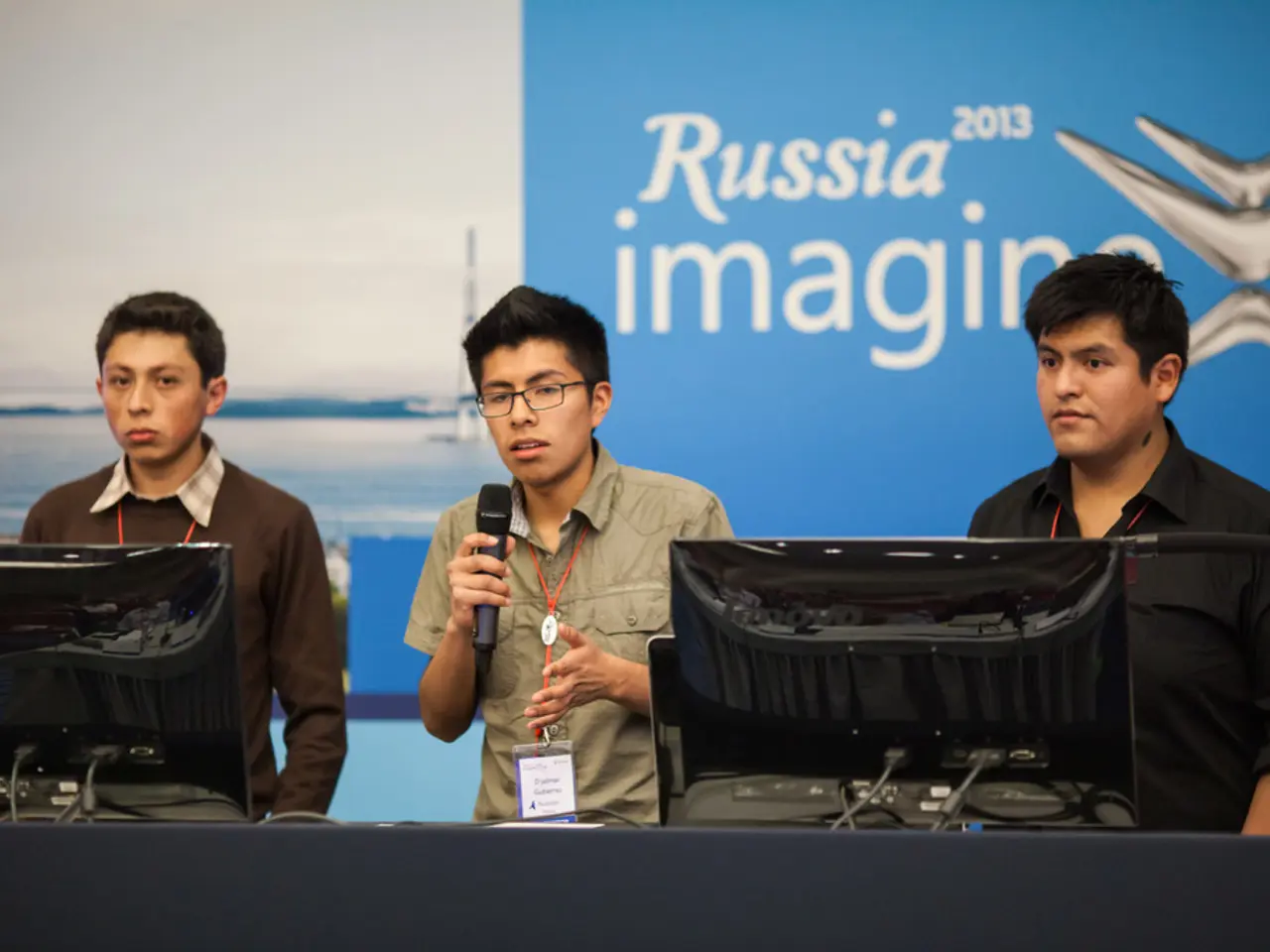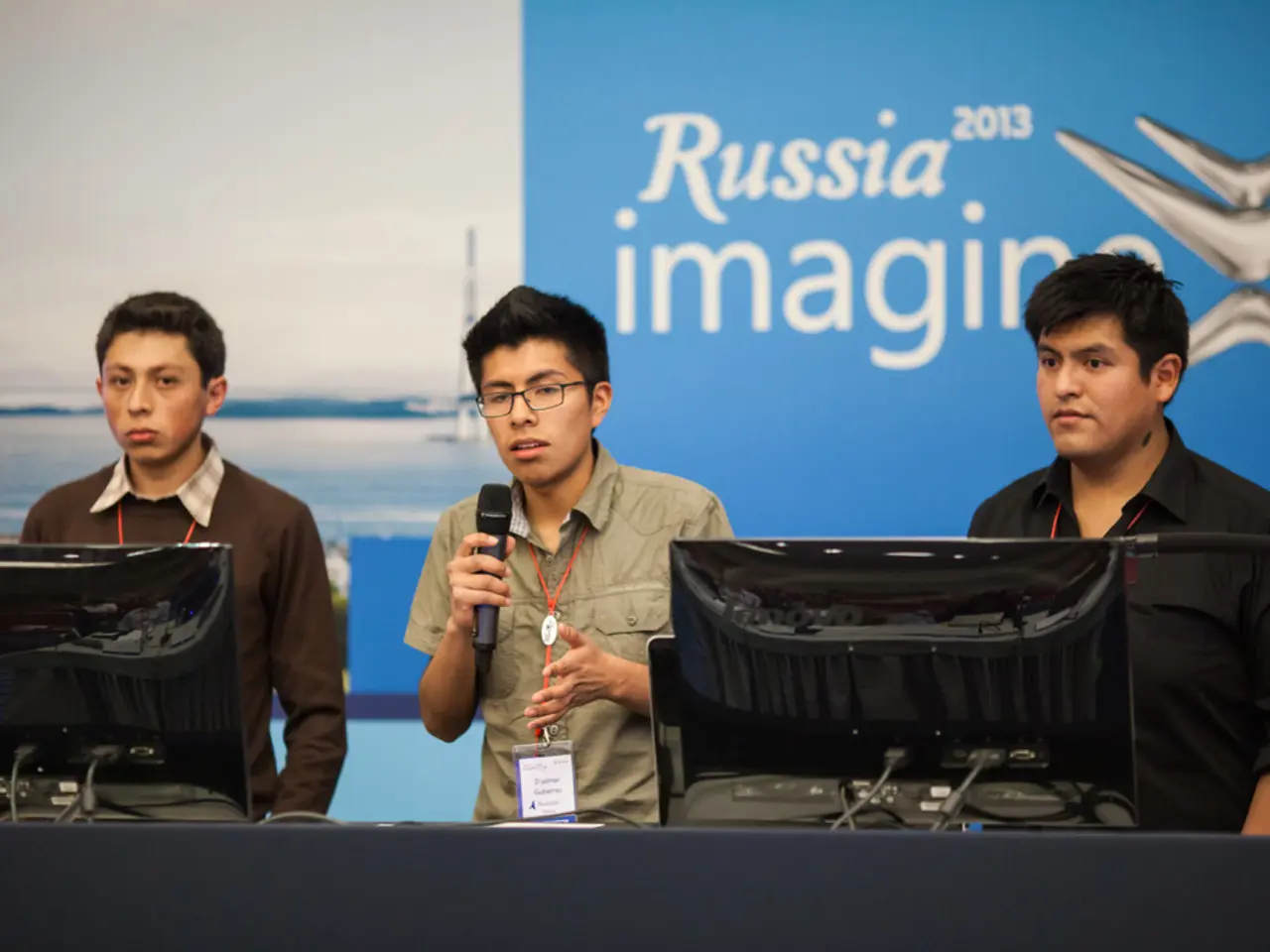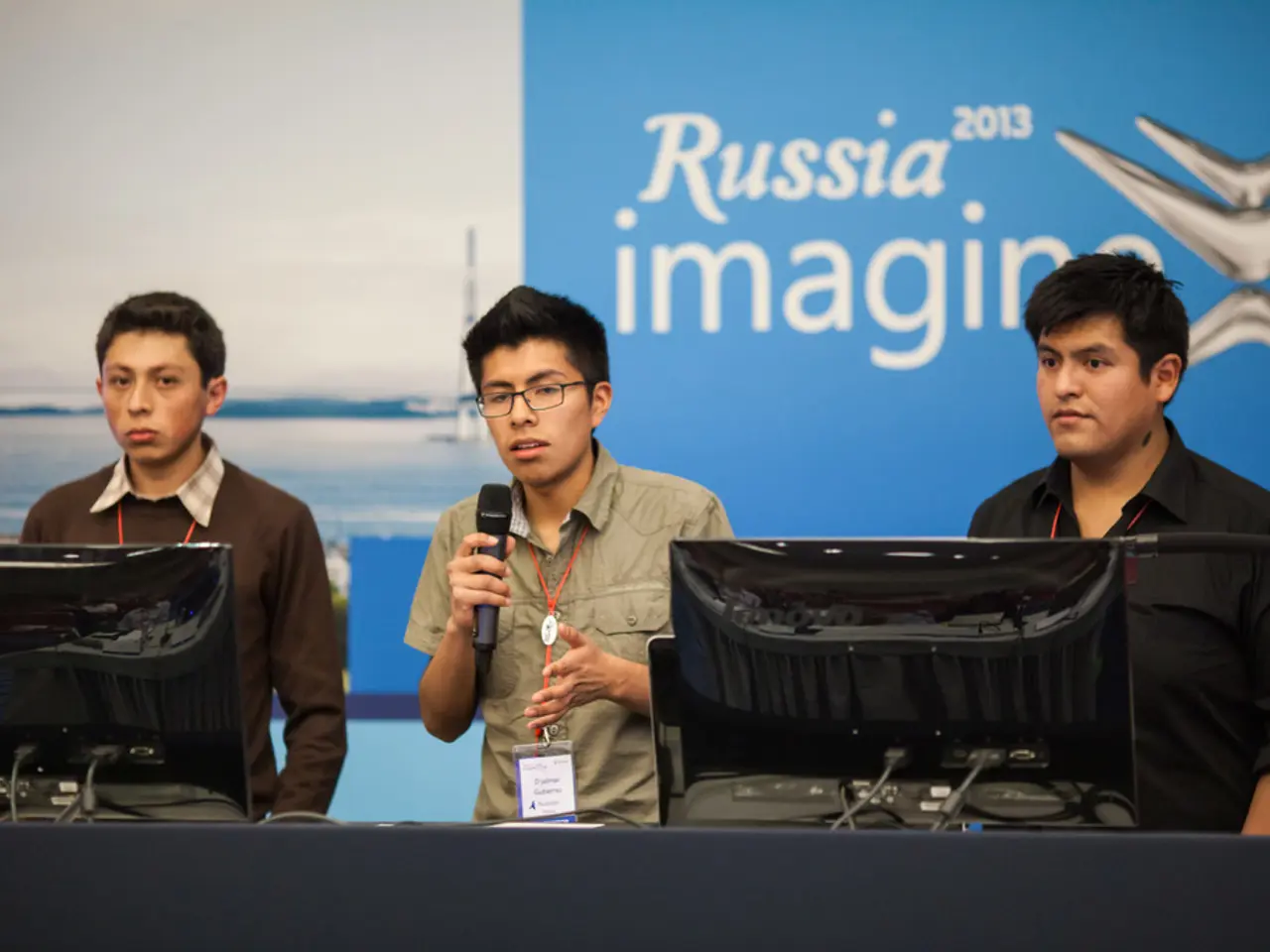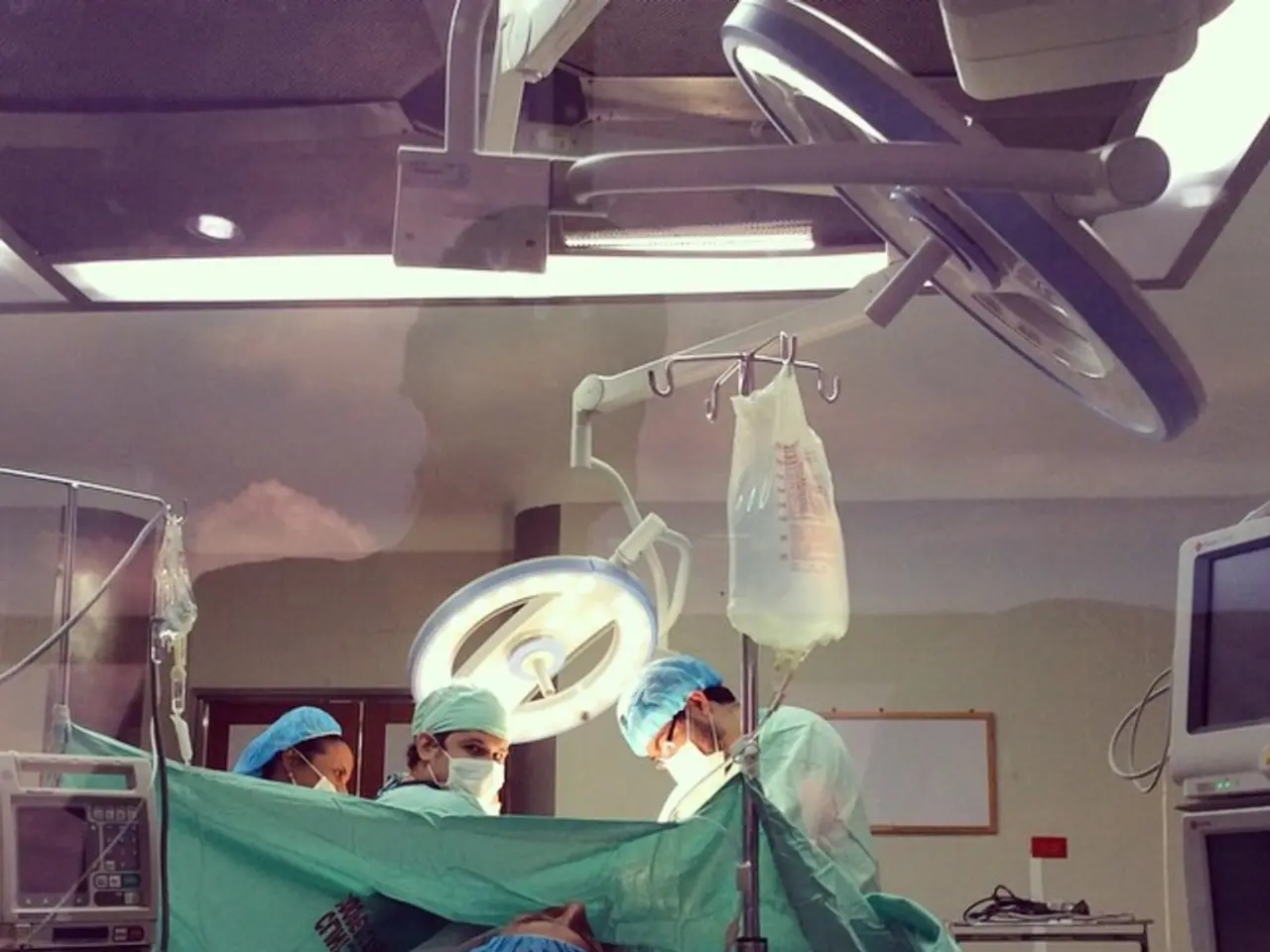Putin and Trump engage in discussion, subsequently preceding an aggressive assault in Kiev.
In recent days, Ukraine has found itself in a precarious position as its air defense capabilities face significant strain following a series of large-scale Russian missile and drone attacks. The situation has been compounded by the recent suspension of critical U.S. military aid, including Patriot air defense systems and interceptors.
The embassy in Kyiv reported "insignificant damage" to the facade and roof, allegedly caused by falling drone parts. Poland's Foreign Minister Radoslaw Sikorski reported damage to the consulate building of the Polish embassy in Kyiv during the attack. The staff of both embassies were unharmed, but the incidents serve as a stark reminder of the escalating conflict.
Ukrainian President Volodymyr Zelenskyy wrote that there were 550 drones, rockets, and cruise missiles used in Russian air strikes against Kyiv, causing injuries and damage. Attacks were also reported in other cities, including Dnipro, Sumy, and Kharkiv.
The Russian Defense Ministry reported the destruction of 48 Ukrainian drones. However, the intensity and scope of these attacks have left Ukraine's air defenses under significant strain. Russia has intensified its bombardment, launching some of the largest combined missile and drone strikes since the full-scale invasion began, particularly targeting densely populated cities far from the frontlines.
The tactics used by Russia are designed to exhaust Ukraine’s air defenses and maximize civilian casualties. These include delayed cluster munitions, drones with chemical weapons payloads, and “double tap” strikes that target first responders.
The Trump administration's decision to pause shipments of critical air defense equipment and ammunition has further limited Ukraine’s ability to counter these threats. This has led to urgent calls from President Zelenskyy for increased pressure on Russia and more air defense support.
Despite these challenges, Ukraine continues to innovate militarily. For instance, it has deployed bomber drones launched from unmanned surface vessels to strike Russian installations in Crimea. However, these asymmetric tactics, while effective, are not a substitute for robust, layered air defenses.
Ukraine is also focusing on expanding its own production of ballistic missiles, such as the Sapsan (Hrim-2), to bolster its ability to strike back and reduce reliance on foreign military aid. However, production rates remain limited, and the shift to domestic manufacturing is still in its early stages.
Ukrainian leadership and Western allies have called for increased sanctions and pressure on Russia to curb its missile and drone production capabilities. There is consensus among Ukraine’s partners that maintaining a strong, multi-layered air defense network is essential, but recent pauses in Western aid have left Ukraine more vulnerable to Russia’s evolving offensive tactics.
In summary, Ukraine’s air defense status is precarious: critical systems and interceptors are in short supply due to the suspension of Western aid, while Russia continues to escalate its missile and drone attacks. Ukraine is innovating and seeking to boost domestic production, but urgent international support remains vital for protecting its civilians and critical infrastructure.
The attacks have caused damage to infrastructure in Kyiv, including residential buildings, educational and medical facilities, and transport infrastructure. One person was reportedly pulled from the rubble after the attacks, and twelve people were treated in the hospital due to injuries sustained during the attacks, with a ten-year-old girl among the injured.
The German Foreign Office condemned the Russian attacks and called for more defense aid for Ukraine. German Chancellor Friedrich Merz and government spokesman Stefan Kornelius believe there is a pattern of increased attacks following Putin's phone calls. Train traffic in Kyiv was delayed due to the destruction of railway tracks during the attacks.
Sybiha demanded "harshest sanctions" from the West against Russia to punish the country. Russia and Ukraine exchanged prisoners again, according to the Russian Defense Ministry and Zelensky's Telegram channel. However, no information was given about the number of released soldiers.
As the conflict continues, it is clear that Ukraine needs urgent support to bolster its air defense capabilities and protect its citizens from further harm. The international community must respond with increased aid and sanctions to curb Russia's aggressive actions and ensure a peaceful resolution to this ongoing conflict.
- Amidst the escalating conflict, the general-news of damaged embassy buildings, such as the Polish consulate in Kyiv and the embassy in Kyiv themselves, serve as a grim reminder of the increasing impact of crime-and-justice, specifically the intensified Russian air strikes against Ukraine.
- With Ukraine's air defense capabilities under significant strain and the suspension of critical U.S. military aid, including Patriot air defense systems and interceptors, the political implications for the countryhave become increasingly dire, necessitating urgent pressure on Russia and more air defense support from the international community.






